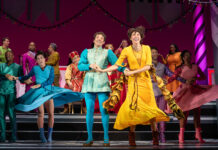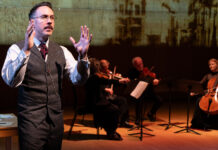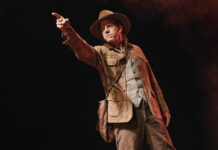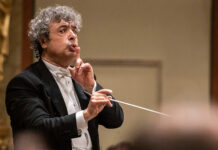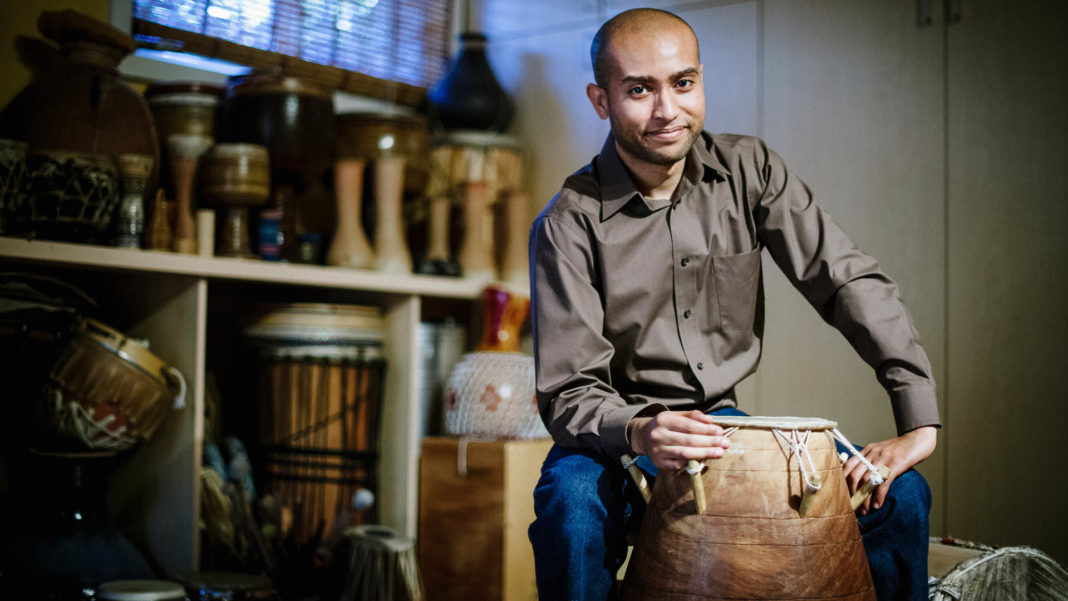You might recall that in May of this year, the Los Angeles Chamber Orchestra launched a new program called Session. The idea being to take classical music out of the formality of concert halls and explore the relationship of music to physical space and audiences around Los Angeles. The next performance in the Session series takes place tomorrow night at Hauser + Wirth. This concert has been curated, and will be lead by, composer Derrick Spiva Jr. and is presented in collaboration with performance group Four Larks.
The program features all contemporary classical music – no Mozart here. The evening includes works by composers Conor Brown, Salina Fisher, Reena Esmail, Juan Pablo Contreras and Spiva is presenting the world premiere of his new work, The Body Overcome.
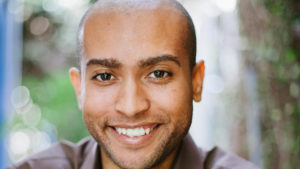
I recently spoke with Spiva by phone about this upcoming concert, diversity in classical music and his fervent belief in deep breathing as a way of navigating our hectic world.
When you were curating the program, how did you select the composers and the works that would be performed?
I’ve been thinking about this linguistics term, “Code Switching,” the act of speaking in one language and jumping into another conversation and then switching back. This whole thing about linguistics and how it is used to describe how our languages are morphing. There are people in multilingual families and communities and I really wanted to find music that spoke to that. Within each one of these pieces there’s not only traditional Western classical influences, but also influences from music from other cultures like Mexican classical music or Indian classical music. I call it these other culture’s their classical music because it’s been a part of their culture for a long time.
What will the space at Hauser + Wirth, what are you expecting that environment to offer?
The concert is supposed to occur in the spaces of the gallery that are for the public at that time of the evening. Which is essentially the courtyard, hallway and garden. I like the environment around the concert. I think it is going to be quite unique. There’s a certain approach that is taken and it can get even more personal I guess if there’s a concert outside. We look at other genres like a rock concert or something like that that happens outside and it could even be drizzling and the concert still happens and people enjoy themselves. We just want to have a different access point, add to the multiple access points of classical music, by changing the setting.
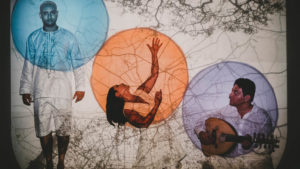
Four Larks is involved with staging and art direction. Three others are credited with movement. I’m assuming this is more than just a concert presentation. What is their role?
The overarching theme is about the mathematics that occur in the natural world. There’s going to be a lot of objects and visual stimulation that are meant to support this idea of the mathematics and architecture of the natural world that comes about naturally. The reason we picked that theme is because that’s also how our language works – which is why I like “code switching.”
There’s also going to be some movement from dancers to also physicalize these things. My piece has influences from West Africa and India as well as some other various Western music in general. Sometimes the dancers will do movement that starts with something you’d see in a West African dance piece, but then moves to something you’d find in traditional Indian dancing. It starts with the structure of one culture and becomes something of a different culture and becomes a hybrid.
Your piece, The Body Overcome, is having its world premiere. What can you reveal about it?
The piece is really about breathing. There’s a lot of people coming out about mental health these days. And I had to go see a therapist because there’s a lot of stuff I have to deal with in the classical community that’s really frustrating and nobody should take that on themselves. The therapist I had was really into exercises that involved breathing – deep breathing and really filling my body with oxygen. The piece is about letting [breathing] overcome your body so that you are more peaceful in the midst of whatever kind of chaos, trial or tribulation is going on in your life. There’s a lot of joy in that. Both of those cultures that I draw from, when I listen to their traditional music, it fills me with joy and peace. So I felt that I could interpret breathing and the response that I get when I do it – the joy and peace that I feel, to those styles of music that also make me feel that way.
Are you more at peace now?
I don’t find myself more at peace, but better equipped to get to moments of peace when chaos arises. We’re all in this together. It’s best to find ways to equip yourself with the means to get to a moment of peace at any given point than to think you can sustain peace for the rest of your life. That might be too much to ask.
Growing up, I’m assuming you didn’t see too many people of color in classical music that could serve as inspirations for you. Do you feel a responsibility to be that inspiration for others who might think classical music is out of their reach?
Being an American we would hope it would mean when you get somewhere you turn around and put your hand out to pull someone else up so we can all rise together. I didn’t get that when I was a kid. When I was a kid they way I got through it is I looked up to Quincy Jones and a lot of film composers I really liked. But I focused on the music itself and the sound of it more than the composers because the composers didn’t look like me.
The term classical music, if you type it into Google, you get a white male. So when that happens just from typing the term in and you see somebody who looks different, there are questions. When I was growing up, I was a trombone player and whenever somebody would see me they would assume “he’s a jazz guy.” I said, “I don’t improv. I play classical music.” I was lying and I could play all the improv I wanted. I Just lied because if I alluded to being a jazz guy, that would be my category. Wynton Marsalis did a lot of work in classical music, but when they think of him they associate him with jazz. I just didn’t want that to happen to me. I wanted to go classical and then say, “guess what, I’m going to do some rapping.” I’m already in. You already know I can do an orchestra piece. There’s no question there. If I do this other stuff, it’s okay.
Photos of Derrick Spiva Jr by Hannah Arista
Note: Derrick Spiva Jr. has changed his named to Derrick Skye since this interview was posted.


